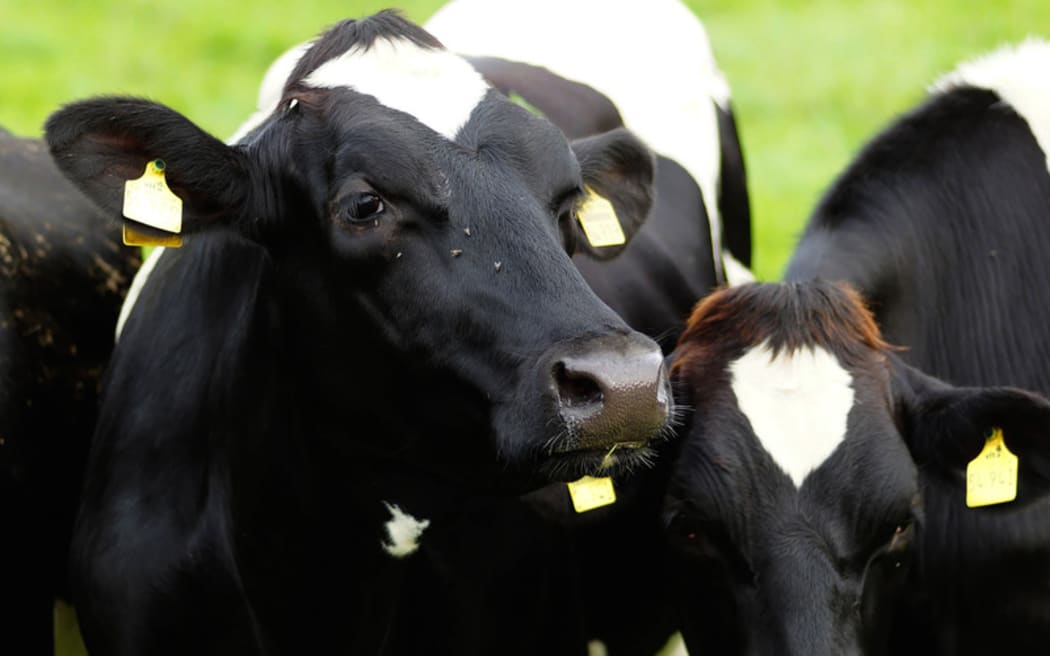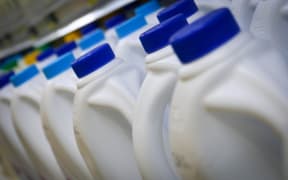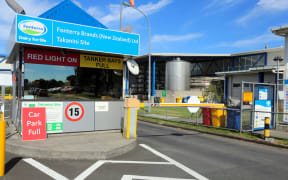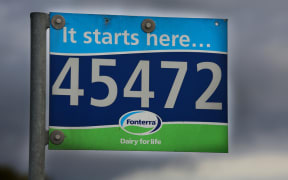Power Play - The Government got some good economic news this week but is still not ready to celebrate, as it anticipates the impact of slumping dairy prices on the economy.

National MP, Bill English. Photo: RNZ / Alexander Robertson
The freefall in dairy prices has been something the Government has shrugged off in the past, but privately ministers are deeply worried about its effect on spending.
The good news that revealed the public finances were in surplus in the ten months to the end of April, once investment gains and losses were excluded, did little to cheer Finance Minister, Bill English.
Just three weeks ago, the Budget had forecast a deficit of $555 million for the 10-month period.
Instead, the financial statements confirmed the books recorded a surplus of $448 million, raising the prospect that the Government might, after all, get into surplus this financial year.
Reaching that goal is still a long shot, but Mr English said the latest financial figures were positive.
But with his typical southern conservatism, he also warned of clouds on the horizon, which made achieving surplus that much harder.
The Government's financial position was in better shape than expected, because its tax take was higher and its spending lower. The Treasury optimistically thinks some of those factors will remain in place by 30 June, when the financial year ends.
Mr English, however, is less certain that an unexpected rise in GST, reflecting increased consumer spending, will be sustained over the last two months of the financial year.
He is particularly worried about the impact of falling dairy prices on spending.
Those lower prices, apart from putting heavily indebted dairy farmers at risk, will take about $7 billion out of the economy. And it could get worse.
It will start with farmers spending less as they receive their pared-down pay-outs from Fonterra. The firms that service them will get less business, leading to a downturn in their income. They will then spend less.
Provincial towns, which depend on the spending of both farmers and the firms that service them, will start to feel the pinch as spending on goods and services drops off. Finally, that squeeze in spending will eventually be felt in the country's biggest cities.
But in another piece of positive news, the Reserve Bank has responded to that fear by dropping its official cash rate from 3.5 to 3.25 percent. It said the fall in commodity prices that began around the middle of last year was now proving more pronounced.
"The weaker prospects for dairy prices and the recent rises in petrol prices will slow income and demand growth," the bank said.

Photo: SUPPLIED
Lower interest rates will help, although some economists fear it will simply fuel the housing market, rather than foster consumer spending.
That remains a big problem for the Government.
While the National Party remains as popular as ever in the opinion polls, privately the Government is worried that might shift if the economy turns negative on the back of lower dairy prices.
Opposition parties are also pointing to the dairy price slump as a serious problem for the economy. They blame the Government, saying its policies have put too much emphasis on selling dairy products.
Labour, New Zealand First and the Greens say New Zealand is still too dependent on commodity prices as the National-led Government has not done enough to diversify the economy.
The public might not get too worried about arguments over how diversified the economy is or not. But people will worry if spending starts to slow. That, in turn, might undermine their confidence in the economy.
Once public confidence in the economy begins to fall, then support for the governing party can start to fray as well.
National will hope the dairy price slump will be offset by further cuts in interest rates, and further drops in the value of the New Zealand dollar.
Both might help struggling farmers and exporters. Lower interest rates will cut the cost of borrowing, while a lower valued Kiwi will put more cash in exporters' pockets as they convert international currency into New Zealand dollars.
Yet the Government will be as desperate as farmers to see dairy prices start to strengthen. The future of both might depend on it.






